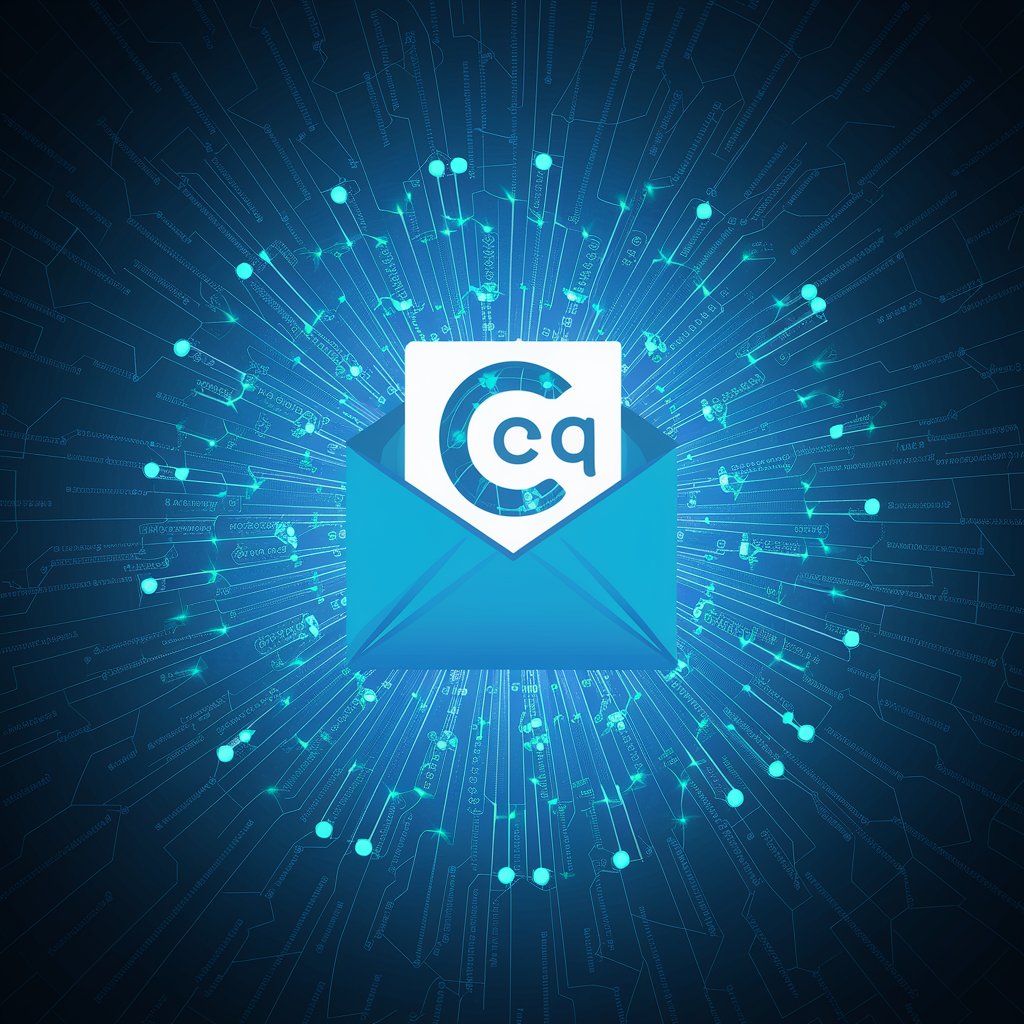Introduction
Enterprises are always looking out for ways through which they could improve the audience engagement, especially in today’s ever fast paced digital landscape. Why is it more important in today’s marketing plans? In this guide, we take a look at how artificial intelligence (AI) is revolutionizing the world of email marketing – for better or for worse depending on who you are asking- and why it often makes more sense to send mail with AI than human beings. In this post, we will explore the technological advancements that has made it possible for AI to rise and be part of an industrial revolution top table issue – what it offers organisations in return; and how businesses can step up their game by using AI.

The Evolution of Email Marketing
While email marketing has evolved a lot from the time it was first introduced. At first, marketers leaned mainly on manual segmentation and lightweight personalization to pinpoint their audience. This method, revolutionary when first implemented, was extremely labour-intensive and lacked accuracy. Marketers would segment subscribers into large buckets, such as all ages in a particular geographic area, and blast generic content. This is where the introduction of automation tools brought in which revolutionized with advancing technology. These worked through businesses being able to automate repetitive tasks (e.g. sending welcome emails/newsletters) and reach a wider audience faster than before. But the real breakthrough has been adopting AI in email marketing strategies. In doing so it is evolved out of being a channel that promotes the business to mass (non segmented) targeting, towards using more personal interactions in an appropriate way and nowadays we even detail global responsible policies.
What is AI-Enhanced Email Marketing?
AI-powered email marketing helps in using AI techniques to automate and improve various parts of the transactional or promotional emails. While traditional automation only automates repetitive tasks, AI can sift through big data to learn more about customer behaviors and anticipate trends in order to deliver hyper-individualized content. Top Technologies in Ai-driven Email Marketing – Machine learning, Natural Language Processing (NLP), Predictive Analytics and Data Mining. These algorithms learn over time from each interaction and deliver better targeting, enabling more personalized content. What it Mean: NLP processes textual data to create content that connects and resonates with the reader. It involves analyzing historical data in order to predict what is likely to occur next, so that better and relevant decisions can be created. Data mining, in contrast uses pattern recognition techniques to identify patterns and correlations that can help by way of inform strategic marketing moves.
Benefits of AI in Email Marketing
The usage of AI in email marketing is accompanied with numerous advantages that can boost campaign efficiency. The most important you can notice is better personalization and targeting. Marketers can use AI to produce incredibly sophisticated personalized content that speaks to each of these recipients as individuals triggering engagement and increased conversions. The granular nature of such personalization does more than just cultivate a stronger bond with the customer; it significantly increases their chances to buy (Source: Salesforce).
In addition, AI helps to optimize workflows by automating mundane tasks that would take marketing teams hours of valuable time otherwise. You can automate tasks like segmentation, content creation and scheduling so you have less work to do! AI also includes improved analytics and reporting resources, which provide an in-depth look into how well a specific campaign has performed. With the use of this marketing automation solution, businesses can study data in real-time to acquire actionable insights and modify its strategies for optimum results. Cost effectiveness is one major plus about AI incorporated email marketing. It enables businesses to complete tasks and conducts campaigns more efficiently, reducing the people-power needed in essence becoming an investment.
Key AI Technologies in Email Marketing
The transformation of email marketing is being driven by several AI technologies – all with a hand in improving specific areas related to campaigns. At its core, machine learning is the quintessential example of a technology that allows systems to use data and experience to improve over time. In email marketing, for example, algorithms can examine how users interact and prefer content thus presenting more considerate emails. It can apply NLP to comprehend consumer sentiment, detect trending topics or possibly generate individualized headlines and content.
Utilizing historical data to predict future trends and behaviors, predictive analytics is a key driver for customer intelligence benefiting enterprises. Predictive analytics will detail typical interaction results and prioritise best customer-fit for certain content or offers. It helps the marketers to focus on these potential customers and customise their campaigns. Another key technology is data mining, which processes large amounts of various datasets to retrieve relevant information. Data mining can help uncover patterns and trends that are not immediately apparent in email marketing, which will provide marketers with a better understanding of their audience to develop strategies.
Personalization and Segmentation
The largest benefit of using AI in email marketing is that it can improve personalization and segmentation. Conventional segmentation techniques generally put customers into large buckets like age or location. However, while this is a good approach it lacks the granularity to deliver truly personal customer experiences. AI, however, can sift through various historical data points such a browsing history buying behavior or engagement patterns to better than ever customer segments. With this information on marketers’ hands, these segments can be reached with customized content and recommendations that are ideally aligned to their individual preferences.
An example of such AI-driven campaign was carried out by Amazon which utilised machine learning to suggest products based on individual browsing and purchases history. E.g., The system using analysis of customer behavior could suggest most likely products to each user so that the resulting click-through rates increase 20%. Personalization at this level increases customer experience and average order value, while also impacting engagement levels across the entire process.

Optimizing Email Timing and Frequency
AI is also at the heart of honing when and how often an email goes out – meaning messages are only distributed exactly as they should be. Optimization of send times for emails : Based on the behavior or recipient AI can identify best possible to time frame that maximizes open rate and click-through rate. As a simple example, an AI system can (among other things) use analysis of the historical user behaviour to predict that emails are most likely to be opened on weekday mornings. The system will now schedule all emails to be sent at that time, thereby making it more likely for the recipient to engage.
For instance, if a user has been sent many emails and not opened/clicked them then the system might lower its frequency to avoid overloading it. Not only it increases engagement, but also helps to keep a positive relation with the audience. Example: Adobe’s AI-powered platform selects the best time to send an email for each user with predictive models and drives a 10% increase in engagement.
Subject Line and Content Optimization
One of the most essential elements of any email campaign, a well-crafted subject line and content can make wonders for your business with AI integration in this aspect belonging to points that will significantly boost you success from an email marketing perspective. AI can study things like word choice, length and even tone of subject lines to understand what titles are more likely to perform well. This provides the flexibility to test different versions and figure out what works best with consumers.
Additionally, AI-based content optimization tools are able to conduct an analysis of email copy and suggest best practices for making it compatible with the audience. This could take the form of an AI tool that scans texts in emails and recommend adjustments to make language more exciting or closer-related to recipient taste. Powered by AI, A/B Testing enables marketers to test different content versions and identify the best performing one. This consists of distributing a number of versions of your email to a small portion(fraction)of the audience, interpreting the results and then submitting.(.)the TOP-PERFORMING version for large(r )(scale)) campaign. By doing this in a data-driven manner, we make sure the content sticks with the audience and causes them to take action according to your desire.
Enhanced Customer Engagement
AI-powered email marketing takes personalized data to the next level, providing experiences that are more interactive and user-friendly. The emails, in turn can include dynamic content elements such as personalized recommendations, real-time updates and interactive features. For instance an email with a dynamic section that shows tailored product recommendations from what the receiver clicked on while browsing. This not only creates a more tailored email but drives additional engagement in the process.
Ifcombined with behavioral triggers-provoked by user actions-a scaled system can produce timely and contextually relevant responses, leading to increased engagement. For example, an AI system may automatically email any user who abandons a shopping cart with a follow up reminder and potentially even offer the users of discount to complete their purchase. This selection of targeted messaging makes the brand continue to stick in mind and people are more likely to convert from this. An example is Sephora, which uses AI to send browsing history-based product recommendations and convert at rates 15% higher than the industry average.
Automation and Workflow Management
AI also takes the house in boosting email marketing workflows. When every component of marketing from creation to scheduling and reporting is automated, AI takes the bulk off into its hands ensuring seamless execution for campaigns. Especially when it comes to large-scale campaigns, which are often segmented and personalized.
AI can do this by automating audience segmentation (determined through a variety of criteria such as purchase history, web behavior and engagement level). This ensures that each of your segments will get to see the right articles, based on her or his interests and needs. Furthermore, AI is able to create dynamic content-specifically personalized product recommendations or targeted offers-and automate the listening of each email with perfect accuracy.
Source: Studies to back it up Show cases where the companies which have reflexive measurements on optimization and automation Using AI Benefits Real measurement Efficiency gains better-campaign performance. A modern AI application could be to use it for automation of email sends, taking into account the time when each particular person is expected to check email and send them accordingly. This also boosts engagement and gives marketing teams the freedom to focus on more strategic work.

Analyzing and Predicting Customer Behavior
AI tools that offer the capability to understand customer behavior assist in formulating marketing programs. Based on the customer journey, AI recognizes behavioral patterns and predicts likely future actions helping businesses proactively address consumer needs aligning their marketing strategies. AI could be used to look at the history of how customers interacted with a brand and tell us if we think there is this customer that, based on all previous data seen by AI algorithms use in real time or near-real-time, he/she seems like someone who would benefit from something they did not even know about. This data can be used to deliver a targeted content that meets the interest giving us an increase chance of engagement and conversion.
Predictive models also assist businesses in recognizing those trends and growth opportunities. If we give an example a company, by using AI executing on historical data to spot trends in the marketplace and predicting which products or services are going to be popular soon. This data are significant in influencing the development of products and marketing plans for a company to keep it one step ahead from its competitors. AI has allowed companies like Spotify to analyze user-listening patterns and deliver personal-playlists, thereby improving overall-user experience & engagement! This kind of tailored experience builds customer satisfaction that enhances loyalty.
AI and Data Privacy Concerns
Data privacy is another aspect that worries enterprises when it comes to deploying AI solutions. When it comes to email marketing, the use of AI often involves amassing lots of data about customers from usage to their personal information. This creates concern for data privacy and marketers have to deal with labyrinthine regulations to adhere.
Businesses need to: Adopt rigorous data protection measures Be open about their use of data Among its provisions are requirements for companies to be upfront about the data they collect and how it will be used and stored, as well acquiring permission from customers before applying their information to marketing. There are also great ethical concerns and more ethics – AI use by businesses must be careful to ensure privacy with customers For a brand, its reputation is always at stake because giving it into wrong hands can burden the trust of customers so building customer trust through responsible data handling to protect your business from backlash.
All of which is why having a strong data protection strategy in place is critical to avoid the type of cyber attacks that result in data loss and prevent customer trust. This means using security measures like encryption, conducting frequent audits and securely storing data. Also, companies must be informed and compliant with new data protection acts as soon as possible.
Even though there are so many advantages associated with AI in email marketing, it still has its issues. A potential downside is too much automation that results in losing the personal touch during communications. Although AI can generate content on an unprecedented scale, it cannot replace a human marketer’s emotional intelligence and creativity. The consequence is content production that feels robotic and distant, which can turn away customers.
Well, for this not to happen; it is imperative that a balance be found between automation via AI and human creativity. AI can take the heavy lifting out of technical segmentation and content optimization, while human marketers find new empathy for their audience-quite literally fleshing each segment into a character with this knowledge-and create narratives building empathetic connections through emotion. Together, technologies and creativity can offer the viewer a more interactive experience that feels real.
Re-tooling & cannot stop learning The digital world is fluid, companies need to keep pace with the ever-changing trends and technologies will enable them to stay competitive. This means an investment in the training of marketing teams and tools is a continuous need to become familiar with AI. And, this means businesses should localize data analysis because they cannot depend on AI to drive strategic insights. That said, while AI can provide useful data to fall back on, marketers need to remember other elements such as brand identity and customer connection when architecting their strategies.

Future Trends in AI-Enhanced Email Marketing
There is a bright future ahead for AI powered email marketing with newer technologies and innovations shaping the way up. Developments in PersonalisationOne of the exciting trends is how personalization techniques are becoming more sophisticated. In the future, as AI technologies advance even further then businesses will be able to send out hyper-personalised emails which are tailored specifically for each unique bosses behaviour and preferences. This might involve real-time content variation (so that an email’s content changes to match the actions or preferences of a recipient at the time they open it),
When looking forward, IDC predicts the incorporation of AI into AR and VR as another major trend in enterprise. This could pave the way for a range of interactive and engaging email experiences, from virtual product demos to choose-your-own-adventure-style narratives. A travel company could use VR as part of their sales process, offering customers a virtual “tour” ofa destination or brandcould allow customer to try on clothes from the comfort of home using an AR app.
As AI evolves, we will undoubtedly continue to see more effective analysis and reporting tools. This will provide an even deeper level of understanding into customer behavior, which affords marketers the ability to be more informed as they make decisions and adjust their strategies on-the-fly. Moreover, as data privacy lay alters to be more restrictive over time; making sure that one gets ahead of the change by deploying solid protection measures and also transparency about how a company uses this information will remain top priorities.
Conclusion
AI emails in marketing automate a lot of tasks such as segmenting data to create personalized content for different categories, hence building an unmatched level of personalization. Through AI technologies, marketers can uncover deeper customer insights, deliver the content that is hyper-personalized and align their strategies with higher likelihood of success. There is no doubt that AI will be increasingly important for the online advertising industry as we move toward a bright future. Companies that are quick to adopt these technologies could positively impact their business in the digital landscape. Nevertheless, AI should work as a complementary tool with human creativity and cannot introduce without taking care of ethical aspects or data privacy issues. This is how businesses can build trust and forge a powerful connection that will deliver long term success.



